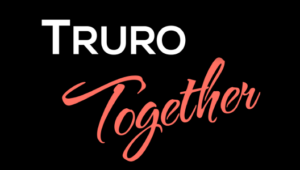Becoming a mental first aider –
words by Anna Cormie
Becoming a mental health first aider, just like a physical first aid course, is open to anyone. Cornwall Council currently has an ongoing project called ‘towards zero suicides’ and part of this, I believe, is helping to provide free online training to become a mental health first aider. https://www.cornwall.gov.uk/health-and-social-care/mental-health/towards-zero-suicide/
The course involves learning about different types of mental health conditions, how symptoms can show, what to look out for, and how to support both them and yourself throughout the process. A mental health first aider is not a counsellor, we only offer support not treatment; we can look out for signs of people struggling with their mental health, we can provide information on professional services, and we can provide support to make phone calls or go to appointments.
I completed my training as a student during lockdown with Mental Health First Aid England and since I was living in Cornwall, I only had to pay for the textbook making it far more affordable. I also went on to do a Suicide First Aid course, and am part of the orange button scheme which provides an easy way for people to see that I’m suicide first aid trained.https://www.cornwall.gov.uk/health-and-social-care/public-health/public-health-campaigns/orange-button-community-scheme/
I feel that being a mental health and suicide first aider is extremely important; I have known many people with a variety of mental health conditions, and at times (before my training) I have not known what to do. Having the reassurance of what steps to take and where to direct people helps me to both look after myself and others.
I’ve attached some links that are useful for anyone who is interested in getting involved. If needing support for their own or others mental health, a few contacts are:
Cornwall and Isles of Scilly 24/7 NHS mental health response line on 0800 038 5300 (24hrs)
Samaritans 116 123(24hrs)
SANEline on 0300 304 7000 (4.30pm–10.30pm every day)
CALM on 0800 58 58 58 (5pm–midnight every day) or on their webchat
There are other charities and helplines that can be used, some focusing on particular illnesses, and these can be found by searching online.



